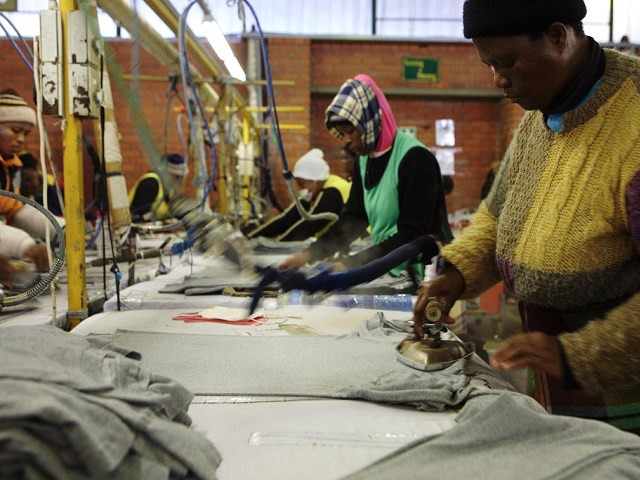
The Textile Industry in Lesotho
Lesotho is often referred to as one of the poorest African countries but interestingly it has the distinguishable mark of being a country where most people own their own homes. This is a remarkable achievement for a country that has a GDP of $2.3 billion in 2015. Lesotho’s garment industry contributes 20 per cent to the country’s GDP. Most of the 40,000 workers are female and employed in about 41 Chinese or Taiwanese owned factories.
When you look at the textile industry in Lesotho what you see is a picture of a booming industry which started in the 1990s when Asian businesses began to invest in Lesotho. Garments were produced in Lesotho and shipped to overseas mainly European Union (EU) and American markets. In the year 2000, when the African Growth and Opportunity Act (AGOA) was introduced it was designed to boost trade between the United States and African countries by allowing certain products into the US duty and tariff free. As a result, Lesotho became even more attractive to investors. Given the geographical proximity of Lesotho to the ports in South Africa, Lesotho was capable of exporting finished goods via road or rail given the expansive transportation network through South Africa.
Prevailing global trade policies were very significant in the decision to relocate the factories from Asia to Africa. It is estimated that Lesothos 41 apparel firms each year make 90 million knitted garments, 26 million jeans, and a growing range of other woven top and bottom garments. At its peak in 2008, Lesotho’s garment and textile exports totalled US$340 million. However, many Africans living in Lesotho were not able to exploit the opportunity that AGOA provided for textile industries in their country. Lesotho also exports apparel to South Africa, and duty free to SACU and SADC countries
Why didn’t Africans Start their Own Textile Firms in Lesotho?
- Access to capital:Lesotho like many African countries was a former colony and Africans could not own the means of production so from generation to generation therefore, wealth could not be created that would have been substantial enough to be able to start a factory.
- Lack of government empowerment policy to subsidize or to provide capital for entrepreneurs to start factories.
- Lack of management experience: Perhaps one of the most important and more and least talked about reasons is the lack of managements experience. Across the United States and in many other places in the world entrepreneurs are born out of people who have sometimes been in industry and have worked for a large corporations who see an opportunity through their work in the industry and take advantage of it. In Lesotho, there were virtually no Africans who had worked in such high levels of industry to develop the business acumen needed to start the business and sustain them.
- The Sotho for the own part knew little about the supply chains and intricacies of the textile industry so the idea that they would start a business in an area that they have little or no knowledge of and become successful is almost impossible.




1 Comment
by Gwen
I liked the discussion about why Africans don’t own their own industries. It’s not as easy but not impossible
Comments are closed.